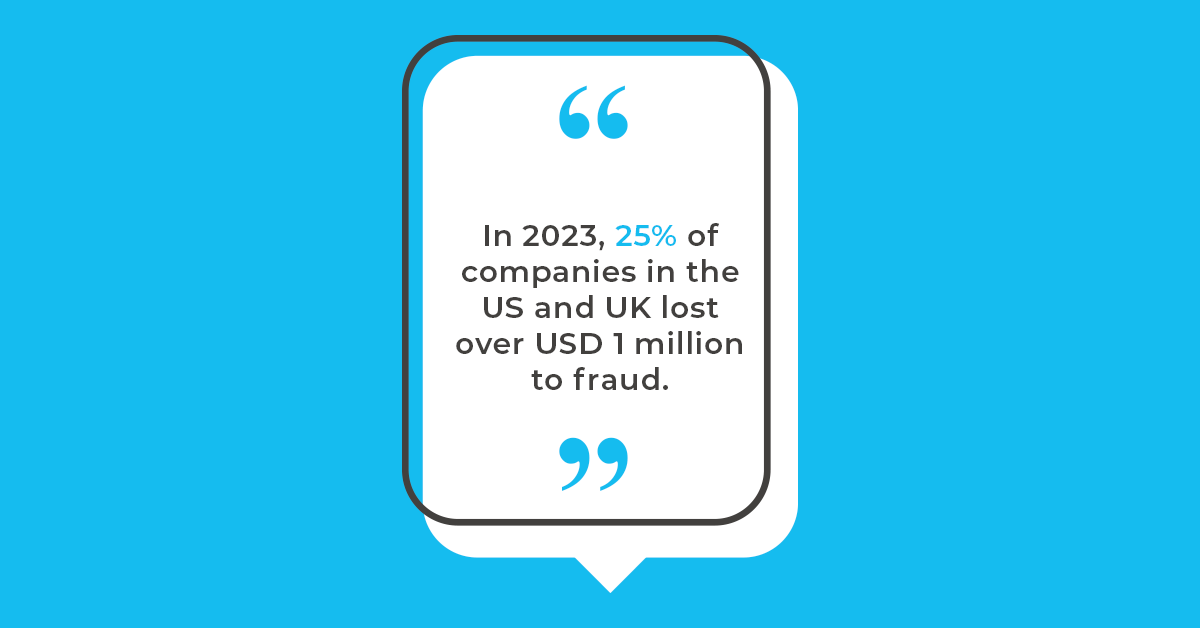This is Part 3 of our US cross-border payment series. In this article, we will discuss the payment regulations and compliance requirements in the world’s largest economy.
Alloy, an identity risk management company, ran a survey of over 450 decision-makers in January 2024 to study the trends in financial fraud. The report found that while companies have generally kept fraud in check, it continued to result in considerable damage.

Source: Alloy’s 2024 State of Fraud Benchmark Report
In light of this, a robust payment regulatory framework is needed to protect the interests of all stakeholders and ensure the integrity of the financial system.
So, what are the organisations and agencies involved?
Organisations and regulators fighting financial fraud in the US
In the US, monitoring and enforcement fall under federal and state agencies. Listing down requirements of all 50 states and the District of Columbia is difficult and unnecessary at this stage, so let’s take a look at the laws and regulations at the federal level.
At the heart of a complex ecosystem is the Federal Reserve (Fed), the central bank of the US. It is responsible for formulating policies and promoting and ensuring the safety, efficiency and accessibility of payment systems. Fed’s efforts are complemented by other agencies such as the Consumer Protection Bureau, the Federal Trade Commission and the Department of Justice.
In addition, major payment networks such as the Automated Clearing House, Mastercard and Visa also play a role in regulating payment transactions.
Let’s look at some of the main financial laws governing the payments industry in the US.
Anti-Money Laundering and Combating the Financing of Terrorism (AML/CFT) framework
The AML framework in the US is considered a reference for other countries. Part of the reason is that international financial institutions (FIs) must comply with US AML regulations, e.g. its sanctions.
Even though AML laws may be different at the state level, federal-level regulations are followed nationwide. All industry players do Customer Identification Programmes and implement the Know-Your-Customer (KYC) procedure as part of their AML/CFT efforts.
Bank Secrecy Act (BSA)
Enacted in 1970, BSA is the primary anti-money laundering regulation in the US. It is enforced by the Financial Crimes Enforcement Network (FinCEN), a bureau under the Treasury Department. The BSA is sometimes referred to as an anti-money laundering law or jointly as BSA/AML. It is enacted to detect and prevent money laundering, the financing of terrorism and other financial crime.
Individuals, banks and other FIs must adhere to several regulations under the BSA, such as establishing a compliance programme that contains:
- documented policies and procedures, employee training and designated compliance officer
- reporting module including suspicious activity reports (SAR), currency transaction reports (CTR) and high-value transactions
- record-keeping
Failure to comply with BSA may result in prosecution under the US Criminal code, including imprisonment and a penalty of up to USD 250,000.
Another agency involved in implementing and enforcing BSA is the Office of the Comptroller of Currency (OCC). The OCC oversees AML/CFT practices within FIs.
The USA Patriot Act
Passed in 2001, this law emphasises stringent regulations and inspections to combat terrorism. It mandates all US FIs to report all transactions, including international money transfers, to prevent money laundering and terrorist financing.
Anti-Money Laundering Act 2020 (AMLA)
Enacted in 2021 as part of the National Defense Authorisation Act, AMLA has introduced new AML requirements and reformed some of the existing ones.
One of the key provisions of AMLA is the Corporate Transparency Act where both domestic and foreign companies doing business in the US must disclose their beneficial owners to FinCEN. It has also enhanced BSA penalties for repeat violators.
Of note, it states that the exchange or transmittal of products as a substitute for money, including cryptocurrencies and arts, are not subject to BSA regulation and AML compliance requirements.
Want more insights on the US payments landscape? Read Parts 1 and 2, where we explored the US remittance industry, key players and real-time payments infrastructure.
We also discussed compliance. Read this to avoid the most common compliance pitfalls, and this for more information on our robust compliance approach that protects our business partners and their transactions.







